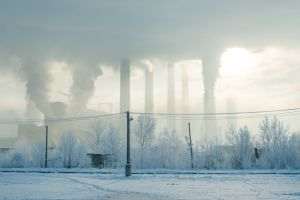Climate change is affecting more and more regions around the world, and our country is no exception. The global climate crisis has reached a critical point, highlighted by data from 2023, which shows an increase in the average global temperature by 1.48°C compared to the pre-industrial period. Romania is feeling these changes to the fullest through the intensification of heat waves and the increase in the areas affected by extreme drought, according to a report published by InfoClima. According to the report: "Almost half of the days of the year exceeded the 1.5°C threshold established by the Paris Agreement, signaling the alarming direction in which the climate is heading, with a profound impact on ecosystems and society. Romania is already feeling these changes through the intensification of heat waves in the last seven decades. Between 1950 and 2023, their duration and frequency increased significantly, with most regions experiencing extensions of 10-15 days, and the southwest and east of the country over 25-30 days. Projections indicate a continuation of this trend until the end of the century, affecting public health and the economy". According to physicist Bogdan Antonescu, one of the authors of the report on climate change in Romania, the increase in the average global temperature by approximately 1.2 degrees Celsius, unprecedented, has led to a change in the characteristics of heat waves: "Compared to the pre-industrial period, heat waves are today more frequent, more intense, have a longer duration and a significant social and economic impact in the current climate. This impact will continue to increase with the increase in the average global temperature. We will have more pronounced thermal stress, more deaths and increasingly greater economic losses. With their current impact, heat waves show us very clearly that there is an urgent need for measures to reduce the concentration of greenhouse gases. Otherwise, we can expect that in 2050 in Bucharest we will have four heat waves with an average duration of 12 days, and the number of hours with heat stress to double compared to 2023". According to the same document, in addition to heat waves, drought represents another major challenge for Romania. The areas affected by moderate, severe and extreme drought have increased, with peaks in the periods 2018 - 2020 and 2021 - 2023. The 2018-2021 drought is the longest recorded, with devastating effects on agriculture and food security. The aridification trend continues, profoundly influencing ecosystems and agricultural production.
Other extreme weather phenomena, experts show, such as severe storms, have also become increasingly frequent. Thus, between 1940 and 2023, an increase in the conditions favorable to the occurrence of these events was observed, especially in eastern and northern Romania. "Projections for 2025-2050 and the end of the century indicate an intensification of these extreme phenomena, with a negative impact on agriculture and infrastructure", the experts emphasize. In addition, they argue, urbanization amplifies the effects of climate change. Thus, cities become hotter and drier than rural areas, a phenomenon known as the Urban Heat Island, and temperature differences can reach up to 7-8°C. "By 2040, heat waves and extreme temperatures will affect approximately 50% of the urban population, especially in cities such as Bucharest and Craiova", is the harsh warning of climatologists. They say that adaptation requires integrated urban policies and nature-based solutions, given that, with the increase in the average global temperature, humanity is approaching "climate tipping points, irreversible thresholds with devastating effects". The authors of the report warn that although Romania has implemented measures regarding energy efficiency and the promotion of renewable energy, the lack of a national climate law and poor implementation highlight the need for an integrated vision, with the energy sector being "central to this transition". "Although fossil fuels predominate, there are plans to increase renewable and nuclear capacities by 2050. Electrifying the economy and developing energy storage infrastructure are essential for achieving climate neutrality. Public perceptions are mixed, however. Although climate change is recognized as a problem, only 4% of Romanians consider it a national priority, with economic concerns being dominant", warn the authors of the cited report. Awareness of the impact on agriculture, water, economy and health has not yet translated into a strong demand for climate action. In this context, the report "State of the Climate - Romania 2024" provides a clear perspective on the need for immediate action to prevent the irreversible consequences of climate change, conclude climate change experts.


















































